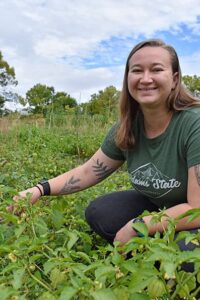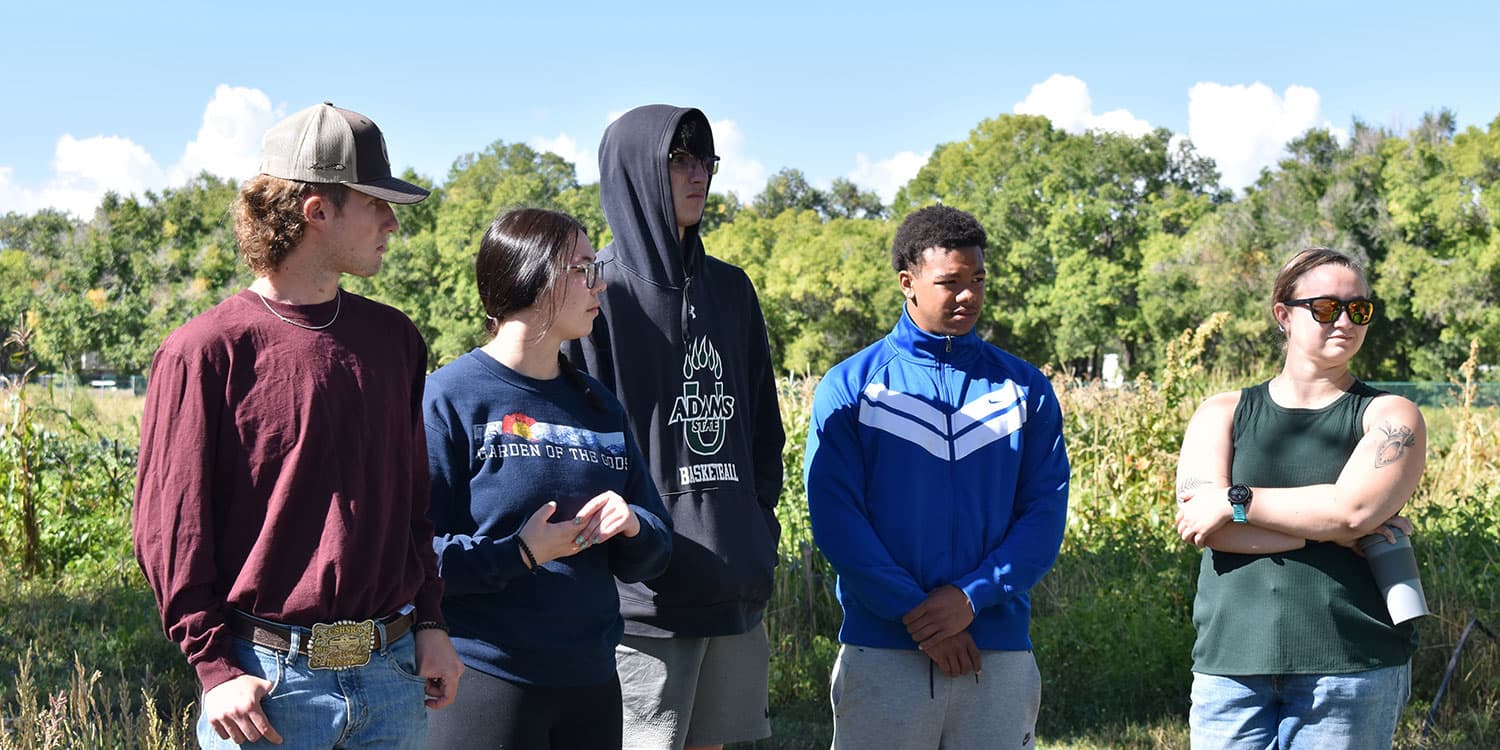Food is about more than what goes into the body. Each bite signifies different policies, production methods and social implications that affect everybody in the world.
That’s why the food studies program at Adams State University is a diverse menu of classes based on four intertwined ingredients — health and wellness, sustainability, business and food policy, and sociology. Students work toward a Bachelor of Arts in interdisciplinary studies as they explore the importance and impact of food on human existence.
Their head chef, so to speak, is Reilly Caldwell, the university’s food studies program coordinator and lecturer. She masterfully blends her knowledge of sustainable communities with her passion for human rights, energized by the goal of educating and enlightening students whose skills can improve the world.
“I feel like food is an accessible way to feel like you’re making a difference, and to actually make a difference,” says Caldwell, who grew up in Maryland and received her Bachelor of Science in sustainable development from Appalachian State University, plus a minor in Spanish. She moved to Flagstaff, Ariz., for grad school at Northern Arizona University, where her thesis focused on the limitation of food access in Mohave County. The poverty rate there is 42 percent higher than the state’s average.

She explored food shortage from multiple perspectives: What were the influencing factors? The current realities? The potential solutions?
Today, Grizzly students consider and discuss those kinds of big-picture questions during courses such as FOOD 250: Community Food Systems, KIN 120: Concepts in Wellness and SOC 425: Environment and Society.
“The first class of the program is called perspectives on food, and the whole point of the class is to look at food through different lenses,” Caldwell says. “We had a week about nutrition and medicine and their relationships with food. We had a week about identity and food. Another about the economy and food. At the moment, we’re doing culture and food. We’re learning about all of these different aspects that are intertwined — ones many of us don’t necessarily think about.”
In the same week, food studies students might explore how different regions and religions approach food, the complexity of economic models in the food industry, and innovative ways to approach agriculture. They get a holistic view of food, plus a career-helping deep dive into their chosen area of emphasis (health and wellness, sustainability, business and food policy, or sociology).
“The beauty of food studies is you can do so many different things with it, but if you’re a food studies student concentrating on, say, health and wellness, it directs you in a certain way,” Caldwell says. The program prepares graduates for a variety of food-related careers, including agronomists, chefs, food safety specialists, community lobbyists and nutrition educators.
Food studies students also benefit from the program’s partnerships with local and regional community members and businesses, which provide access to internships and hands-on learning opportunities. Those partners include Rio Grande Farm Park, SLV Local Food Coalition, Valley Roots Food Hub, Gosar Ranch Natural Foods, and Rockey Farms.
“These connections are great because I can take students out to the Rio Grande Farm Park, and they can see that kind of farming, which is very diverse and community-oriented,” Caldwell says. “And then I can also take them to one of the biggest potato growers in the San Luis Valley, and they can see what a farm looks like when it’s 1,900 acres. Those connections are great experiences for students, and it’s also helpful for them to realize that food-related issues are right here in their own backyard.”
All the while, these Grizzlies aren’t just preparing for food careers. They’re cultivating the tools needed to nourish and transform the world, guided by passionate educators like Caldwell.
For more information visit Food Studies.



